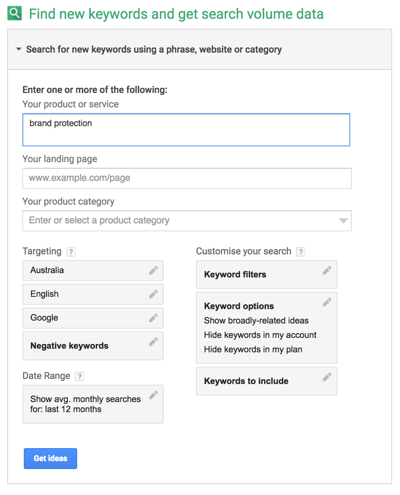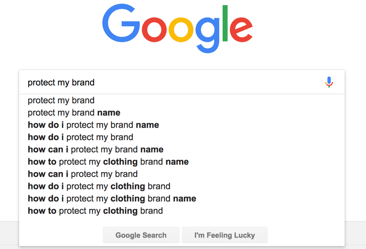While this article is about keyword selection, let’s take a moment to look at the big picture of Inbound Marketing for a legal practice, so you can see how it all fits together.
At the top of your Inbound funnel is the “Attract” stage.

As its name suggest, this is where you attract traffic to your website, so you can begin the process of showing potential clients the strengths of your practice.
Your choice of keywords is important in this phase, as it will influence your search visibility on Google for the:
- Type of people, with
- The type of legal problems, that
- You want to reach and attract to your site.
The better you are at zeroing in on the topics that are of interest to your potential clients, the more of them you will attract.
Attracting the right kind of traffic will set your Inbound Marketing campaign up on solid foundations!
How do people search when looking for a lawyer?
Google’s algorithm is amazingly powerful. As it has moved to a ‘topics’ focus, it has changed to more closely match the way that your potential clients are searching when they look for legal services.
It responds to the way people now search using very descriptive, specific terms to find exactly what they are looking for, rather than using broad terms such as ‘lawyer’ or ‘legal advice’.
When they turn to the Google Machine, they won’t be searching for a legal practice until they are well down the path towards making a decision about which firm to use.
In the early stages, they are interested in the particular issue they are having a problem with or want advice with — and that is what they will be searching for.
With this in mind, rather than thinking about “marketing your legal practice”, the first thing we suggest you do is to see each area of law within your practice as a separate expertise, with a separate audience — and find keywords that are relevant for each of those.

Develop your strategy so that you are selecting keywords and topics for each area of law that you service. For example:
- Family law — as an individual service
- Commercial law — as an individual service
- Professional negligence — as an individual service
- And so it goes.
Clearly, with a large multi-service firm, you may not be able to give each of those sections attention right away.
So, the first step is to set your priorities.

Look at the profitability/potential for each area of law, as well as the resources you have in-house to handle the work.
From there, you can make some decisions about which Inbound campaign you will build out first.
You might start with… say… patents and migration law — and once those Inbound campaigns are bubbling along and generating new clients, turn your attention to adding additional campaigns for other areas of law.
Now, with that decision made, you can start to dig deeper to find the keyword opportunities that will help you to grow the practice.
Keyword research is about people and their legal problems
Looking at the websites of legal firms, it is clear that so many lose opportunity because they are focussing on:
Their expertise, and what they want to be “found on Google for”
When they SHOULD be focussing on:
Their potential clients, and what they want to find.
And that, right there, is the #1 mistake to avoid with your keyword research.
When planning their website content, so many lawyers forget to go back to basics. They forget to walk a mile in their potential clients’ shoes.
I cannot stress this enough. When it comes to SEO, the most important aspect of keyword research for a legal practice is figuring out the:
- Actual search terms that
- Real people use when
- Looking for solutions to their legal problems and
- Answers to their questions
Notice something in that last two points that should set you thinking on the right path?
It was the words, “looking for solutions to their problems and answers to their questions”.
I didn’t say “looking for your law firm and information about you”.
Don’t get me wrong, your firm’s credibility and capability are very important in the buying process — but not at the “attract” stage at the top of the funnel, when your potential clients are early in the Buyer’s Journey.
Credibility and trust come later, at the “decision” stage of your Inbound campaign.
THEN they will want to look at the service pages on your website to learn about you, to see if you can be trusted with their hard-earned money before that letter of engagement is signed.
But right now? You need to attract them to your site in the first place.
And that is where your blog and your choice of keyword topics is so vitally important.
As your Inbound Marketing campaign matures, it is your blog that will cast the net out to attract a wide range of fish to your website.
This means that you must focus your thinking for content on:
- What your potential clients are looking for, rather than
- What you want to sell them.
So how DO you find the best keywords for your legal practice?
The first step is to develop a very clear picture of who you want to do business with.
Sales hard-heads call them ‘prospects’.
Or they might call them ‘your market’.
Hmmm….
We prefer to think of your potential clients in simpler terms: as ‘people’.
They are real, living, breathing people. Just like you ‘n me.
They have challenges, questions, problems and dreams, and that is what drives their thinking when they sit down at their computer to use Google.
So... to connect with them with the right content on your blog, you need to get a clear picture of:
- Who they are
- How they think
- What they need, and
- Why they think they need it.
This will shape the keywords you use. It will, in turn, shape the content of your website — and make your digital marketing more profitable for you.
You will find our free e-Book, 'Turning Prospects Into People', very helpful when thinking this through. It explains the process of developing a persona, and gives you insights into how to ‘walk in their shoes’ to understand how they tick.
To get your free copy, click this banner…
Tip: Go “Way back when… ” in your thinking
For the purposes of keyword research, you need to cast your mind back to a place you’ll read about in 'Turning Prospects Into People' that I call "Way Back When”.
That’s the time when you didn’t know that much about legal services.
It was way back when:
- You didn’t know the jargon
- You didn’t know the law
- You didn’t know the different courses of action that can be taken
- You didn’t know all the ins and outs
- You didn’t know the mountains of ‘stuff’ that you know now
Why is this important?
Because that’s where your potential clients are at!

Freddy Fudpucker doesn’t know a poofteenth of what you know. And that is reflected in the keywords he is using on Google search.
With this in mind, let’s look at the process for keyword research that will point your thinking in the right direction.
Develop a list of legal problems that you feel are important for your potential clients
Let’s say that you have decided to build out an Inbound Marketing campaign to generate legal work for Trademarks.
There are two elements to think about with this.
Your service pages
The service page of your website is targeted at people who are further along the Buyer’s Journey.
It needs to be optimised for the broad topic of “Trademark Law” and highlight your expertise in registration and litigation.
It serves a very important purpose when people are at the ‘decision’ stage and ready to contact a law firm.
But this is not where the money is for you in Google search.
Your blog articles
This is where you get content uploaded and indexed on Google. It is your blog that will attract people to your website in the early stages of the Buyer’s Journey.
So…
To attract enquiries from the people you can help, you need to go back to basics and think about the questions that they are asking on Google.
For Trademark law, they might be things like:
- How do I stop someone using my product name?
- How do I protect my brand name?
- How do Australian patents work?
- Protecting a new product from being copied?
- When does a patent lapse?
- What does a patent cost?
- How do I patent my business name?
Yes, it is basic stuff.
But that is how they are searching. That’s what they want to know. And to generate traffic, you need blog articles and other content that addresses these questions — in the language that is being used by Freddy Fudpucker.
Keyword research tools
The first place to look is the Google Keyword Planner. You can find it by searching for “Google Keyword Planner” (Imagine!).

While it is a good start, the problem with this tool is that the results are skewed towards the ‘primary’ keywords, rather than giving you insights into the more profitable ‘long tail’ opportunities.
The reason is, Google wants you to focus on keywords that are costlier when using AdWords, so they can make more money from you. (Imagine that too!).
It is an OK place to start, but when it comes to finding long tail search terms, you can do better elsewhere.
ANSWER THE PUBLIC
One great place to look is a free tool called www.answerthepublic.com
You can ask the old goomer on there to stop glaring at you, and come back with real-time data about the questions people are asking about your topics.

GOOGLE SUGGEST (DROP DOWN)
Another way to get a handle on the opportunities open to you is to go to google.com.au and take a look at the related search terms that appear in the drop down menu when you plug in a keyword.
This is called Google Suggest, and that list you see is based on REAL data that people are searching for.
I just typed in “how do I protect”, and it told me that people are actually searching for things like this:

Next, I tried “protect my brand”, and found these… 
FOLLOW THE TRAIL
A further tip with Google Suggest…
If you key in some of those related search terms and look at THEIR related search terms, you’ll be taken to places you might not have thought of — but which could be VERY relevant for your website content strategy.
It is amazing what keyword ideas you can find for your legal practice, several generations away from your original idea.
For example, looking at the above example, you could dig deeper by exploring terms related to fashion/clothing brand protection.
You’ll need to use your experience with this though, to determine whether it is a market you want to chase.
While there may be a world of misery out there with people stealing clothing brand names, you might feel that this market isn’t profitable, in which case, move on.
GOOGLE SUGGEST (BOTTOM OF PAGE)
Also, when you type in your phrase, scroll to the bottom of the Google's results page.
You'll notice some additional suggestions for searches related to your original input.
This list can spark ideas for other keyword topics you may want to take into consideration to attract the right audience.
TALK TO YOUR TEAM
Another place to get ideas is from any customer-facing people in your business — your lawyers.
Have them keep an ear out for the questions that people ask, ESPECIALLY for questions that use the wrong terminology for one of your services or a legal issue.
Listen to what they are asking, and see if their language is commonly used by other clients.
LOOK AT YOUR ENQUIRIES
Another source of keyword ideas is the email notifications you receive from your website when people make an enquiry.
Look at the questions they ask and the way that they phrase things.
You may spot opportunities in there to create content that focusses on these questions, and attract similar enquiries to your site.
Putting your new keywords to work on your website
As you build out your list of search terms, you are creating a terrific resource for your blog content.
By writing articles that answer these questions, and ensuring that they are properly optimised for Google, you’ll start to draw traffic to your site.
Most importantly, it is likely to be the type of traffic that you want — potential clients who have questions about legal problems that your legal team can solve.
This blogging strategy, coupled with an automated nurturing strategy, will help you start to generate more enquiries that you can turn into qualified leads — and that HAS to be good for business!
Need some help with finding the right keywords for your law firm?
We'd love to help you to grow your law firm, and you can be sure we will take a genuine interest in you, your ideas, your objectives and your challenges. So get in touch with us today by arranging a no-obligation chat about keywords and your overall marketing needs.




















